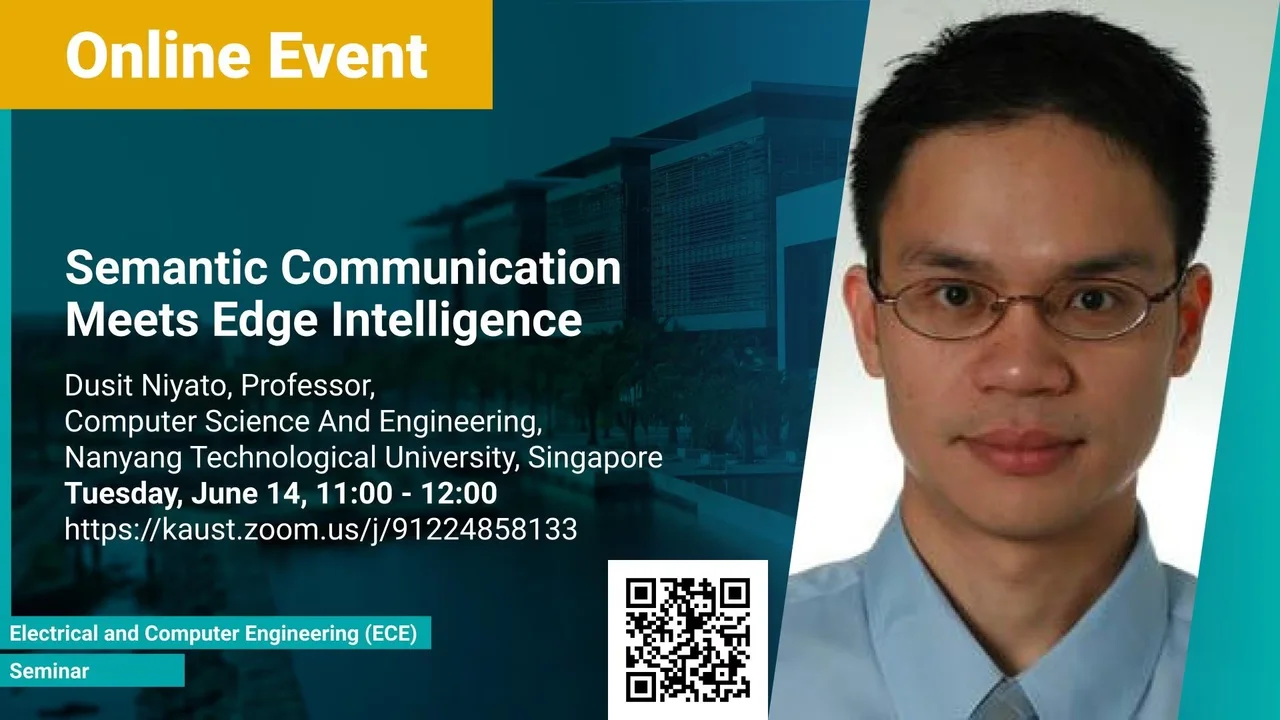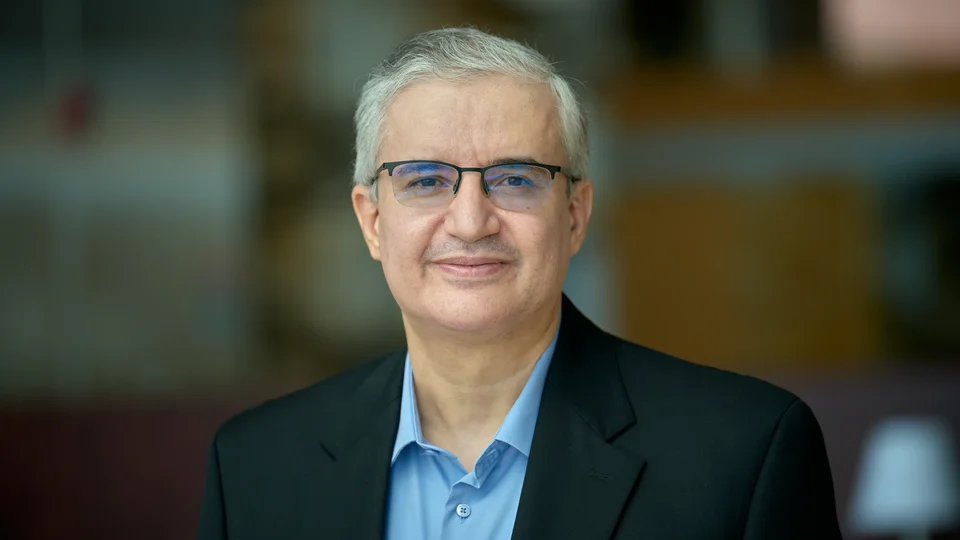
Semantic Communication Meets Edge Intelligence
- Prof. Dusit Niyato, Computer Science and Engineering, Nanyang Technological University
KAUST
In this seminar, we first give background and present the framework of the modern SemCom. Then, we discuss the general semantic extraction methods and semantic metrics used in the existing studies.
Overview
Abstract
The development of emerging applications, such as autonomous transportation systems, is expected to result in an explosive growth in mobile data traffic. As the available spectrum resources become more and more scarce, there is a growing need for a paradigm shift from Shannon’s Classical Information Theory (CIT) to Semantic Communication (SemCom). Specifically, the former adopts a “transmit-before-understanding” approach while the latter leverages artificial intelligence (AI) techniques to “understand-before-transmit”, thereby alleviating bandwidth pressure by reducing the amount of data to be exchanged without negating the semantic effectiveness of the transmitted symbols. In this seminar, we first give background and present the framework of the modern SemCom. Then, we discuss the general semantic extraction methods and semantic metrics used in the existing studies. To reduce the computation and storage overheads incurred by the semantic extraction procedure, we introduce an edge-driven training, maintenance, and execution of semantic extraction. We further investigate how edge intelligence can be enhanced with SemCom by improving the generalization capabilities of intelligent agents at lower computation overheads and reducing the communication overhead of information exchange. Finally, we present case studies involving semantic-aware resource optimization for the wireless powered Internet of Things (IoT) and attention-based reinforcement learning for performance optimization for semantic communications.
Brief Biography
Dusit Niyato is currently a professor in the School of Computer Science and Engineering, Nanyang Technological University, Singapore. He received B.E. from King Mongkuk’s Institute of Technology Ladkrabang (KMITL), Thailand in 1999 and Ph.D. in Electrical and Computer Engineering from the University of Manitoba, Canada in 2008. Dusit's research interests are in the areas of distributed collaborative machine learning, Internet of Things (IoT), edge intelligent metaverse, mobile and distributed computing, and wireless networks. Dusit won the Best Young Researcher Award of IEEE Communications Society (ComSoc) Asia Pacific and The 2011 IEEE Communications Society Fred W. Ellersick Prize Paper Award and the IEEE Computer Society Middle Career Researcher Award for Excellence in Scalable Computing in 2021 and Distinguished Technical Achievement Recognition Award of IEEE ComSoc Technical Committee on Green Communications and Computing 2022. Dusit also won a number of best paper awards including IEEE Wireless Communications and Networking Conference (WCNC), IEEE International Conference on Communications (ICC), IEEE ComSoc Communication Systems Integration and Modelling Technical Committee and IEEE ComSoc Signal Processing and Computing for Communications Technical Committee 2021. Currently, Dusit is serving as Editor-in-Chief of IEEE Communications Surveys and Tutorials, an area editor of IEEE Transactions on Vehicular Technology, editor of IEEE Transactions on Wireless Communications, associate editor of IEEE Internet of Things Journal, IEEE Transactions on Mobile Computing, IEEE Wireless Communications, IEEE Network, and ACM Computing Surveys. He was a guest editor of IEEE Journal on Selected Areas on Communications. He was a Distinguished Lecturer of the IEEE Communications Society for 2016-2017. He was named the 2017-2021 highly cited researcher in computer science. He is a Fellow of IEEE and a Fellow of IET.
